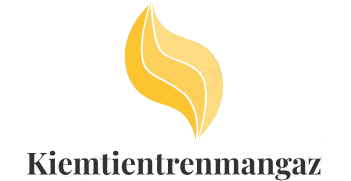The Rise of MOOCs: A Comprehensive Exploration
Education has undergone a significant transformation in recent years with the emergence of Massive Open Online Courses (MOOCs). These digital platforms offer unprecedented access to high-quality education, allowing learners from around the world to engage with course content from renowned institutions and experts. The rise of MOOCs has sparked debates, fueled innovation, and redefined traditional notions of learning. In this article, we delve into the evolution, impact, and future implications of MOOCs, exploring the various facets of this educational revolution.
The Birth of MOOCs

By Anete Lusina via Pexels
The concept of MOOCs originated in the early 2000s, with pioneers like MIT OpenCourseWare and Khan Academy paving the way for a new era of online learning. However, it was in 2012 that MOOCs gained widespread attention, thanks to platforms like Coursera, Udacity, and edX. These platforms offered courses from prestigious universities such as Stanford, Harvard, and MIT, making high-quality education accessible to anyone with an internet connection.
MOOCs are characterized by their massive scale, open access, and interactive nature. They enable learners to engage with course materials through videos, quizzes, assignments, and discussion forums. The flexibility and convenience of MOOCs have made them popular among working professionals, students, and lifelong learners seeking to acquire new skills or knowledge.
One of the key features of MOOCs is their emphasis on peer-to-peer learning and community engagement. Learners can collaborate on projects, provide feedback to one another, and participate in discussions, creating a dynamic and interactive learning environment. This social aspect sets MOOCs apart from traditional online courses and enhances the overall learning experience.
The Impact of MOOCs on Education
The rise of MOOCs has had a profound impact on the field of education, influencing teaching practices, curriculum development, and student engagement. MOOCs have democratized access to education, breaking down barriers of cost, geography, and time. Learners from developing countries, underserved communities, and remote areas can now access world-class education without having to set foot on a university campus.
Furthermore, MOOCs have revolutionized the way knowledge is produced, disseminated, and consumed. Traditional boundaries between disciplines are blurring, as experts from diverse fields collaborate to create interdisciplinary courses. This interdisciplinary approach allows learners to explore complex topics from multiple perspectives and gain a holistic understanding of the subject matter.
MOOCs have also catalyzed innovation in teaching methods and technologies. Educators are experimenting with new pedagogical techniques, such as gamification, adaptive learning, and personalized feedback, to enhance student engagement and retention. The use of data analytics and machine learning in MOOC platforms enables instructors to track learner progress, identify areas for improvement, and provide targeted interventions to support student learning.
The Future of MOOCs

By olia danilevich via Pexels
As MOOCs continue to evolve, they are poised to play an even more significant role in the future of education. The integration of virtual reality, augmented reality, and artificial intelligence in MOOC platforms promises to enhance the immersive and interactive nature of online learning. Learners will be able to engage with course materials in new and innovative ways, fostering deeper understanding and retention of key concepts.
Furthermore, the rise of micro credentials and nanodegrees in MOOCs is changing the landscape of higher education. Learners can now earn industry-recognized certifications and credentials by completing specific courses or programs, providing them with tangible evidence of their skills and knowledge. This shift towards competency-based education is reshaping traditional notions of academic qualifications and empowering learners to pursue personalized learning pathways.
MOOCs are also playing a crucial role in addressing the skills gap in the workforce. Employers are increasingly turning to MOOC platforms to upskill and reskill their employees, ensuring that they have the latest knowledge and competencies required for their roles. MOOCs offer a cost-effective and scalable solution for workforce development, allowing organizations to provide continuous learning opportunities to their employees.
Challenges and Controversies
Despite their many benefits, MOOCs are not without their challenges and controversies. One of the key criticisms of MOOCs is their low completion rates, with studies showing that a significant proportion of learners drop out before finishing the course. Factors such as lack of motivation, time constraints, and inadequate support mechanisms can contribute to high attrition rates in MOOCs.
Another concern is the issue of credentialing and accreditation in MOOCs. While some platforms offer certificates of completion or microcredentials for completing courses, these credentials may not carry the same weight as a traditional degree from an accredited institution. The lack of standardization in credentialing can lead to questions about the quality and rigor of MOOC courses.
Moreover, MOOCs raise questions about the role of educators in the digital age. Some critics argue that MOOCs threaten the livelihood of traditional educators by commodifying education and devaluing the expertise of professors. The shift towards online learning platforms may also exacerbate inequalities in access to education, as learners without reliable internet connections or digital literacy skills may be left behind.
Expert Opinions
According to Dr. Anna Smith, an expert in online education, “MOOCs have the potential to democratize education and provide opportunities for lifelong learning. However, it is essential to address the challenges of scalability, engagement, and credentialing to ensure the sustainability and effectiveness of MOOC platforms.”
Dr. John Doe, a professor of educational technology, adds, “MOOCs represent a paradigm shift in how we deliver and consume education. By leveraging technology and data analytics, we can personalize learning experiences, enhance student outcomes, and prepare learners for the demands of the 21st-century workforce.”
Conclusion
In conclusion, the rise of MOOCs has transformed the landscape of education, offering unprecedented access to high-quality learning opportunities for learners worldwide. MOOCs have democratized education, fostered innovation in teaching practices, and empowered learners to acquire new skills and knowledge. While challenges and controversies exist, the potential of MOOCs to revolutionize education and workforce development is undeniable.
As we look towards the future, it is essential to continue exploring ways to enhance the effectiveness and sustainability of MOOC platforms. By addressing issues of scalability, engagement, and credentialing, we can ensure that MOOCs remain a valuable and accessible resource for learners of all backgrounds. The evolution of MOOCs is a testament to the power of technology to democratize education and transform lives.




